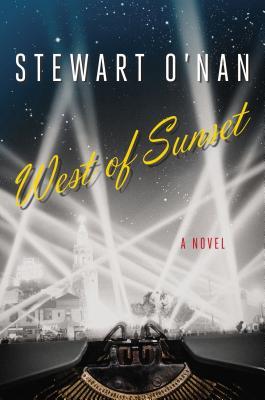West of Sunset is a novel that exposes the final years F. Scott Fitzgerald. His wife, Zelda, has been institutionalized for years, and the crash of '29 left them with nothing but a drinking problem and a mountain of debt to show for their highly extravagant lifestyle. Scott is given an opportunity to screen write in Hollywood, so he hops on a plane and settles in Los Angeles. The story follows him as he hangs out with big Hollywood and literary names like Humphery Bogart, Marlene Dietrich, Ernest Hemingway, and many more. Scott is being watched to make sure his notorious drinking problem doesn't rear up again, and he tries to do the best he can on the scripts he is given in hopes of having his contract extended. Scott frequently writes to Zelda back east, visiting many times when he can, but doesn't feel the same connection to his wife due to her mental illness. Shortly after moving to California, Scott meets gossip columnist Sheilah Graham and he instantly falls for her. He asks around town about her and discovers that she's engaged to a Duke, but he persues her anyway. The two can't seem to stay away from each other and their relationship progresses. Scott lives a double life between his day to day with Sheilah and his letters and necessary visits to Zelda, always feeling guilty on both sides. Scott never hits on a great script, and is constantly worrying that his money will run out, which it eventually does so he uses the time to write what would be his last novel. Scott died of a heart attack in December of 1940, which is where the book ends.
I have always been a fan of Fitzgerald's writing style, so it was nice to learn a little more of his life even if it is technically a novel, not a biography. I knew about his wife being in an asylum most of her adult life, but I did not know the extent of her troubles or what happened to Scott after that, so this was a great window into his life. I have to say I can completely relate to the guilt Scott feels over his wife and the sadness that the person he loved and married is no longer there. It felt very real. I loved all the glamorous name dropping and getting tiny glimpses into the lives of so many stars of the 1930s. I also had no idea that Fitzgerald helped on Gone With the Wind (he touched up the dialogue in some places, but he didn't work on it long enough to get screen credit). All in all this was a wonderful little escape of a read. I give this book 4 out of 5 stars.


No comments:
Post a Comment
Thanks for joining in the conversation!